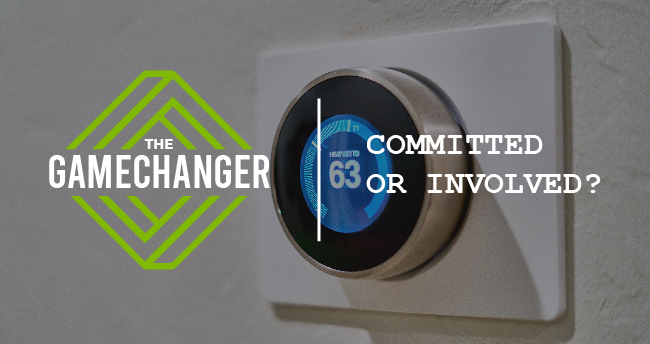Maybe you have heard this one.
A chicken and a pig are walking down the road. The chicken says to the pig, “Hey pig, I was thinking we should open a restaurant!” The pig replied, “Hmmm, what would we call it?” The chicken responded, “How about ham-n-eggs?”
The pig thought about it for a moment and said, “No thanks, I’d be committed, but you’d only be involved.”
The pig understood what the chicken didn’t. There is being involved THEN there is being committed.
One is jumping into the frying pan, the other is not.
The most successful people are committed people. They are all in. They have a goal that they are passionate about, and will give their time, energy and resources to achieve their goal regardless of the cost.
If you had a chance to catch the phenomenal sports documentary, The Last Dance, then you have seen what a strong commitment looks like and the results from it.
Michael Jordan’s commitment launched him into a spectacular career, making him arguably the greatest basketball player to ever play the game and a global phenomenon. Michael Jordan was a perfect example of pure commitment on full display.
He once said, ”You have to be un-compromised in your level of commitment to whatever you are doing or it can disappear as fast as it appeared.”
He understood how fleeting commitments can be in today’s hyper distracting world. Commitments are made and broken on a daily basis. We frequently see them compromised.
If you know someone who is on the path to success, it is because they are committed. Their success is tied to their blood, sweat, and tears.
If you know someone who is in a perpetual state of losing, it is probably because they never truly committed to something. They typically dabble, participate, or are just involved. The truth is that in all likelihood they are committed, they are just committed to not committing.
Commitment to winning requires focus and self-discipline. Commitment is like a muscle and it requires daily action to exercise it.
Here are three things that you can do to workout your commitment muscle:
Practice Impulse Control
Self-awareness goes a long way. We typically are not aware of how much we sacrifice to satisfy our immediate needs. If we could put a price tag on these moments, we would see how quickly they add up over time.
Take a look at how often we pointlessly check our phones. A recent study reported that the average American checks their phones 96 times a day. That is just checking!
The scary part is that we aren’t even aware that we are doing it…and that is just one area of our lives. This is what our commitment to success is competing against.
One thing that can help you is to know your triggers. What takes you off course? What distracts you? What is it that you feel powerless against when it is presented to you?
It may be good to track it in a journal or talk with an accountability person who can help you. Knowing your triggers gives you power over your immediate needs and allows you to look past the moment to what you are really trying to accomplish.
Practice Emotional Control
Many agents fail because they are not able to control their emotions. Wouldn’t it be great if we could control our emotions like a thermostat? If things are running too hot, we could just simply turn down the thermostat dial. We could eliminate anxiety, fear, and depression.
Unfortunately it doesn’t work that way. Some days it can feel like it is cranked up all the way up and the dial is broken. Agents carry these emotions throughout their day and cannot figure out why they aren’t winning. While we cannot control our emotions with an actual dial, we can regulate them in a sense.
Emotions are an important part of our physiological make-up. One thing we can do is regulate our emotions. We can embrace the fact that they are part of us. The next time you are feeling an emotion that is shutting you down, take a moment and give yourself permission to feel it’s full effect for 10 seconds.
Once you feel what you need to feel, shut it off and focus on what you need to focus on. You can always come back and feel it again after you accomplish what you need to accomplish.
Commitment to success demands that we compartmentalize our emotions. This doesn’t mean that we need to suppress them. It simply means that we set them aside to complete the task at hand.
Plan and Prioritize
Planning and prioritizing creates guardrails for our goals and dreams. The plan becomes the boss and takes the power away from things that can so easily carry our focus away and distract us.
Planning is thinking about what action needs to happen in relation to what we are trying to accomplish. Prioritizing is doing the right action at the right time to ensure success.
When we prioritize, we do “first things first.” When we plan, we determine what needs to be done first. Planning and prioritizing are what keep us focused on our commitments.
These are just a few things that we need to dial into to stay committed to our dreams and goals.
Commitment is the starting point. After that, the plan and discipline take over. Now it is time to do some self-reflection. Are you the chicken or the pig? Are you all in? Have you truly committed to your success?
The clock is ticking. No one else will do it for you.






